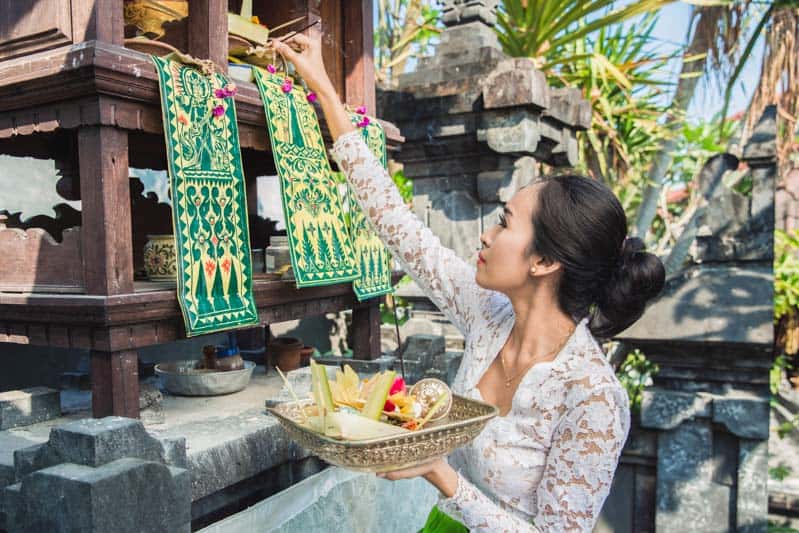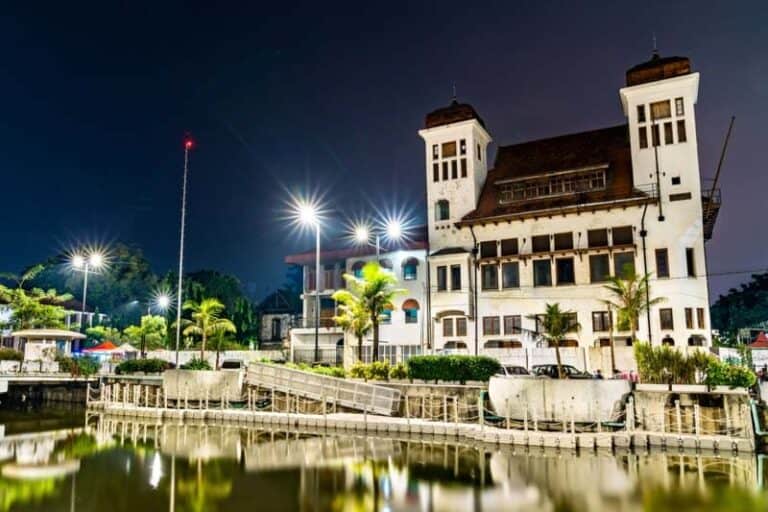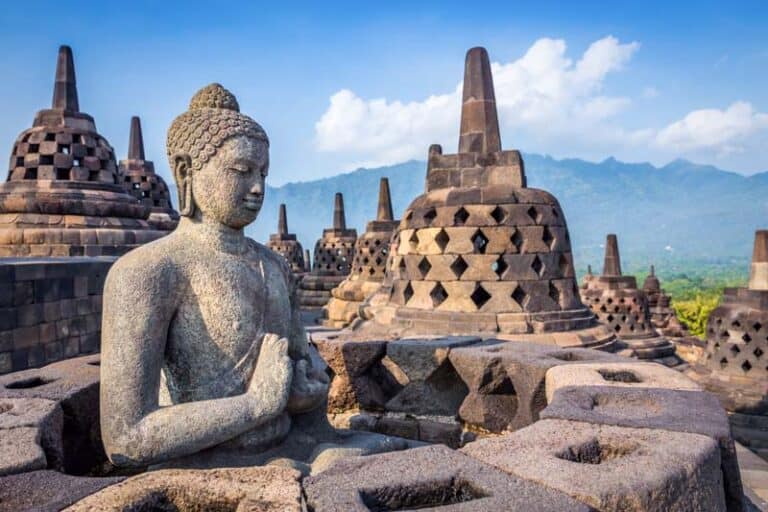What you need about Bali might be all over the internet. This island has become one of the top destinations in the world and known as the island of paradise. It has everything from nature, arts, culture, food, and friendly people. But it has some unique things about Bali that you probably don’t know.
Pecalang, the local officer in Bali
In Bali, each region is divided into villages, where there is a local security officer called Pecalang – it is one of the unique things about Bali that might not exist elsewhere. They work together with the police and other regulators to secure the villages, and they also help to manage the traffics during some occasions in the temples or in the villages. In terms of working on the cultural rules, Pecalang mostly is more powerful than the police. They are also the ones who patrol through the towns during Nyepi, the day of silence in Bali and give cultural punishments to those who break the rules. Wearing traditional and distinctive attire, they are mostly easy to recognize in Bali.
Balinese year
Unlike the Gregorian calendar we are generally using, in Balinese (Pawukon) calendar originating from Hindu religion in Bali, one year has 210 days, and each year is divided into six months with 35 days monthly. The first day of the year is the Nyepi Day. This calendar system might be one of the unique things about Bali that you don’t know.
Balinese names
If you have been to Bali and interact with some locals, you might notice one of the unique things in Bali with respect to their names. The Balinese names usually consist of three parts: a title, a birth order name, and a personal name – and we often hear the same names for several people, e.g., Ketut, Gede, Made, etc.
For the birth order name, basically, they name the child based on their birth order in the family: firstborn is named Gede, Wayan, or Putu (or Ni Luh for a girl); second-born is Made, Kadek, or Nengah; third-born is Nyoman or Komang; fourth-born is Ketut, and the fifth-born will be usually called Wayan Balik (back to the first order) – for both boys or girls. While for a prefix to indicate gender, they will usually use “I” for males (for example, I Wayan Sudiarta), or “Ni” for females (for example, Ni Wayan Yuniarti).
A Balinese family compound and shrine
Traditionally, a Balinese house has spatial orientation and hierarchy to align with the universe. It is usually lived by some members or extended members of the family who share and live in one house complex, sharing one gate and one kitchen, and praying at a typical family shrine.
The complex has various units, including:
- The family temple (shrine) called “Sanggah” or “Merajan” is the worship place. It is positioned at the most auspicious northeast corner of the house and dedicated to the Gods in the Balinese Hindu.
- The sleeping pavilion is the main sleeping room for the head of the household.
- West Pavilion is a pavilion to receive guests, usually located in the west side of the compound.
- The ceremonial pavilion is where life rites and death rituals occur.
- Sakenam is the guest pavilion for relatives and children or can be used by women to do their activities, such as weaving, usually located at the south side of the compound.
- Lumbung, which is the storage area for rice.
- Kitchen, which is usually located in the south due to the association with Brahma (the God of fire).
- Aling-Aling or a small screen wall built directly behind the gate opening to prevent the evil spirits from entering the house compound.
Balinese gender roles
Other unique things about Bali are the Balinese gender roles. The original Balinese culture still adopts the patriarchal system, including marriage, inheritance, and the rights to raise the kids. Men in Bali are those who will get the inheritance and land ownership, and who will take care of the family temples and get all privilege in the family. Men will also have the rights to take the children with them if the divorces ever happen.
That is why every Balinese family has the pressure to have a son as the heir. If a family only has daughters, they can manage to get a “son” who is married by their daughter – it is called “Nyentana“. In this case, that man’s position will be similar to his wife regarding the inheritance and the family temple, but he is not allowed to take or share the property of the family if the divorce happened.
If a couple does not have a child naturally, they can adopt another child from the close family member before searching elsewhere, then do the ceremony and register an official legal document. Therefore, since having a child is very important for a Balinese couple, it is also common for Balinese to get pregnant first before marriage.






